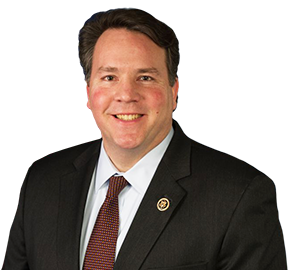It all became official on Monday.
West Virginia’s continuing population decline, as shown from data released by the U.S. Census Bureau, will result in our state losing one of its three members in the U.S. House of Representatives. It really wasn’t a surprise. Even back in the late 1990s, during my high school years, I can remember teachers discussing the possibility of the Mountain State losing more representation in Congress.
At one point, West Virginia had as many as six members of the U.S. House. From about 1973 to 1992, there were four districts. I vaguely remember at that point hearing about the loss of the Fourth District, which represented the southwestern portion of the state — most likely from my eighth-grade history teacher, who spent a portion of the year focusing on West Virginia history.
Since 1993, we have had three Congressional Districts, with District 1 encompassing the Northern Panhandle. David McKinley, of Wheeling, is the current holder of that seat. Carol Miller represents the current Third District, with Alex Mooney in the Second.
Now, we will be down to two.
The West Virginia Legislature will be commissioned to perform the redistricting, because we allow politicians to decide how other politicians are going to represent us. That will most likely take place sometime later this year, so it is ready before the 2022 mid-term election. What the two new districts will look like, though, none of us know. The completed districts, of course, will determine who is eligible to represent them.
McKinley, being from Wheeling, is pretty much guaranteed to still be able to run for whatever seat represents northern West Virginia, if he chooses to seek re-election. But, he may have competition in the primary from one of the other Congressional reps. That, also could be the case in the southern district. It will all depend on how, and where, the Legislature draws the lines.
With a decline in population and the loss of the Congressional representative, West Virginia also loses political clout in Washington, D.C. Fewer individuals representing our state means fewer people in the halls of the U.S. Capitol speaking on our behalf, finding funding for projects, bringing attention to the needs of our people. It also means West Virginia will have four Electoral College votes in the 2024 presidential election. Four votes don’t really mean much to presidential candidates when you have other states holding dozens. It can be a decider in an incredibly close matchup, but in most respects it means West Virginia will be a flyover state from here on out.
This is part of the reason so many of our elected and appointed officials have been pushing the issue of attracting new residents. Fewer people living within our borders means so much, whether it be political opportunity or tax revenue, and as those continue to decrease, we have less of a chance to do some of the things we would like to see happen.
The problem is we’re not going to attract new people to West Virginia by offering them free passes to outdoor activities or passing backwards-thinking legislation. People want to feel welcome and wanted if they are going to pick up their lives and move somewhere else. They want to know there will be secure jobs. They want somewhere they can potentially put down some roots and raise a family.
As wonderful as West Virginia is, we’re not necessarily able to offer that to a lot of people. Our continuing drop in population is proof of that.
(Howell, a resident of Colliers, is managing editor of The Weirton Daily Times, and can be contacted at chowell@weirtondailytimes.com or followed on Twitter @CHowellWDT)

